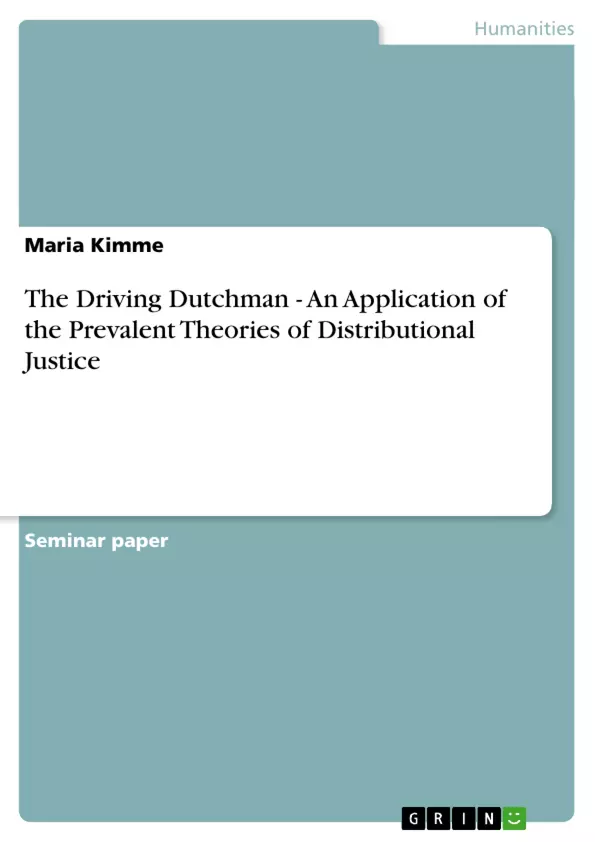In January 1998, the commission of the European Union (EU) sentenced the German car manufacturer Volkswagen to pay € 102 million, since the company had violated the European regulations of competition. 1 It had ordered its non-German subsidiaries not to sell vehicles to German clients. These were interested in purchasing cars abroad for the reason that the list price was cheaper in the bordering countries. A second aspect in acquiring a vehicle abroad is the different tax systems in the member states of the European Union. Additionally to the differences in the Valueadded taxes (VAT), there are also variations when it comes to supplementary taxes levied on luxury items. Some countries insisting on such a luxury tax are Denmark or the Netherlands. When importing a product from a country with luxury taxes into a country without luxury taxes, the taxes can be claimed back. Only the taxes of the importing country have to be paid. These two features cause the acquisition of a car from a foreign EU-country to be an interesting alternative for many people residing in a land with high prime costs in the automotive industry. One of these countries where a car purchase requires a high initial outlay is Germany. Because of the geographical situation, many Germans, when considering buying a vehicle, drive to Denmark or the Netherlands. The Netherlands, for example, have a special 45% luxury tax ( Belasting van personenauto's en motorrijwielen, BPM 2 ) on automobiles. In order for manufacturers and importers to survive, they make a special effort to price t heir vehicles competitively. As a result of this most tax-free prices in Holland are lower than anywhere else. The savings can be up to 20-25%. 3 This option is very likely to change the distribution of welfare within Germany. This effect raises the question: How do the most prevalent theories view this opportunity and the resulting change in distribution? In order to answer this question, this paper will proceed as follows. First, the concept of a luxury tax will be explained and evaluated. Second, the most likely effect of the above -mentioned opportunity on the distribution of welfare will be outlined. Third, the theories of John Rawls, the Utilitarians, and the Libertarians will be introduced and applied to the case. Before providing some concluding thoughts, an overview and some further thoughts will be provided.
Inhaltsverzeichnis (Table of Contents)
- Introduction
- Luxury Tax
- Effect on the Distribution in Germany
- The Main Theories of Distributional Justice
- John Rawls
- A Theory of Justice ...
- Rawls and Cars
- Utilitarianism
- The Utilitarian Theory
- Utilitarianism and Cars ...
- Libertarianism
- Anarchy, State, and Utopia
- Nozick and Cars ....
- John Rawls
- Further Comments
Zielsetzung und Themenschwerpunkte (Objectives and Key Themes)
This paper investigates the implications of a luxury tax on the distribution of welfare, using the example of car purchases in Germany. It explores how the opportunity to buy cars at lower prices in neighboring countries, such as the Netherlands, impacts individuals and society.
- The impact of luxury taxes on distributional justice.
- The effects of cross-border car purchases on welfare distribution.
- An analysis of the perspectives of John Rawls, Utilitarianism, and Libertarianism on the issue.
- The environmental consequences of increased car ownership and emissions.
- The potential social and psychological effects of changes in car ownership patterns.
Zusammenfassung der Kapitel (Chapter Summaries)
- Introduction: The paper introduces the phenomenon of German citizens buying cars in neighboring countries with lower luxury tax rates. The specific case of Volkswagen's price discrimination and the Netherlands' high luxury tax on automobiles are highlighted as key drivers for this trend.
- Luxury Tax: This chapter provides a detailed explanation of luxury taxes, exploring their role in government revenue generation, resource management, and achieving distributional justice. The concept of luxury goods, the motivations behind implementing luxury taxes, and their impact on pricing are discussed.
- Effect on the Distribution in Germany: This chapter examines the potential consequences of the cross-border car purchasing trend on welfare distribution in Germany, using a simplified model of three individuals with varying financial capabilities. The chapter explores the environmental and social costs associated with increased car ownership, as well as the potential for social and psychological effects on individuals involved.
Schlüsselwörter (Keywords)
This paper focuses on distributional justice, luxury tax, cross-border car purchases, welfare distribution, environmental impact, social costs, and the theories of John Rawls, Utilitarianism, and Libertarianism.
Frequently Asked Questions
What is a luxury tax in the context of the EU automotive market?
A luxury tax is a supplementary levy on high-value items, such as cars. In countries like the Netherlands (BPM), it can be as high as 45%, significantly increasing the initial purchase price.
Why do Germans buy cars in the Netherlands or Denmark?
Because list prices are often lower to compensate for high local luxury taxes, and foreign buyers can claim these taxes back, paying only their home country's VAT. This can result in savings of 20-25%.
How does John Rawls' theory apply to car purchasing?
Rawls' "Theory of Justice" evaluates whether this opportunity benefits the least advantaged members of society or if it merely increases inequality by favoring those who can afford to travel abroad for a car.
What is the Utilitarian perspective on cross-border car buying?
Utilitarians weigh the individual benefit of lower prices against the social and environmental costs, such as increased emissions and the loss of domestic tax revenue.
How do Libertarians view luxury taxes?
Libertarians, following thinkers like Robert Nozick, generally oppose such taxes as unjustified state interference with private property and individual freedom of choice.
- Quote paper
- Maria Kimme (Author), 2002, The Driving Dutchman - An Application of the Prevalent Theories of Distributional Justice, Munich, GRIN Verlag, https://www.grin.com/document/34941



